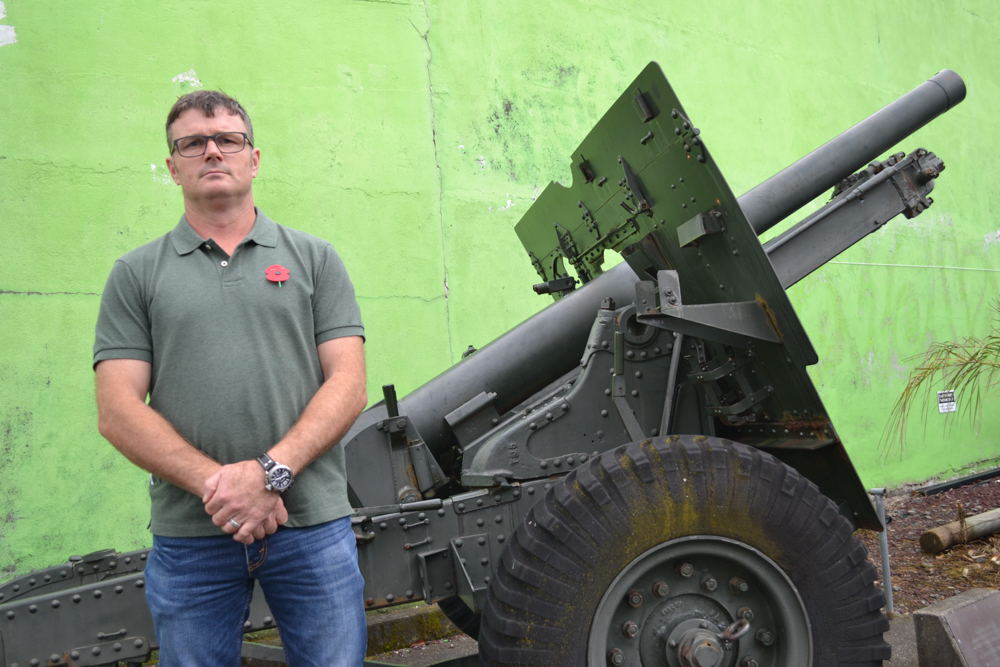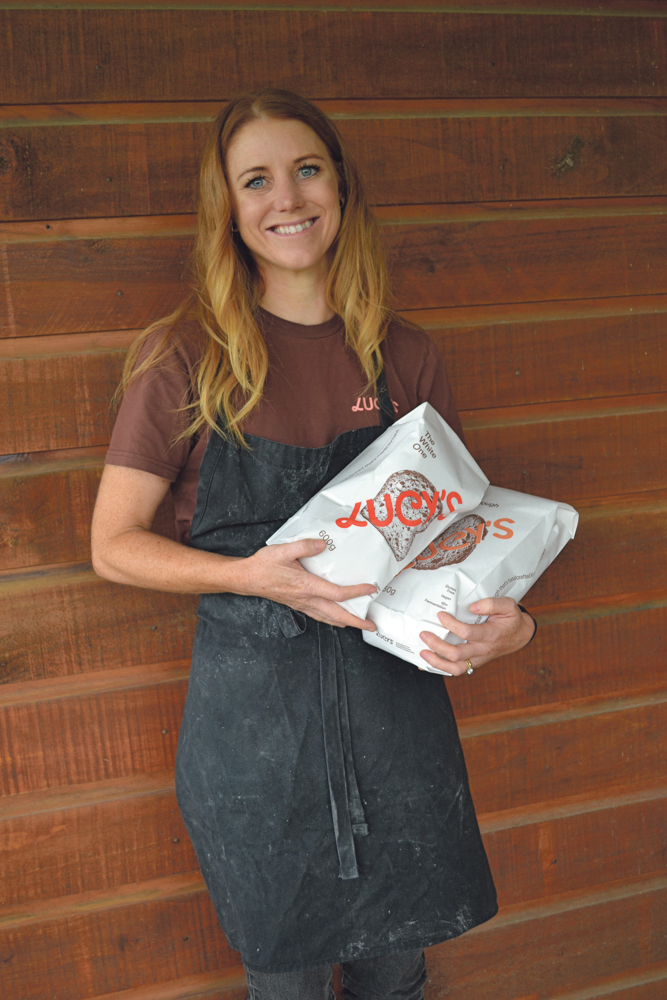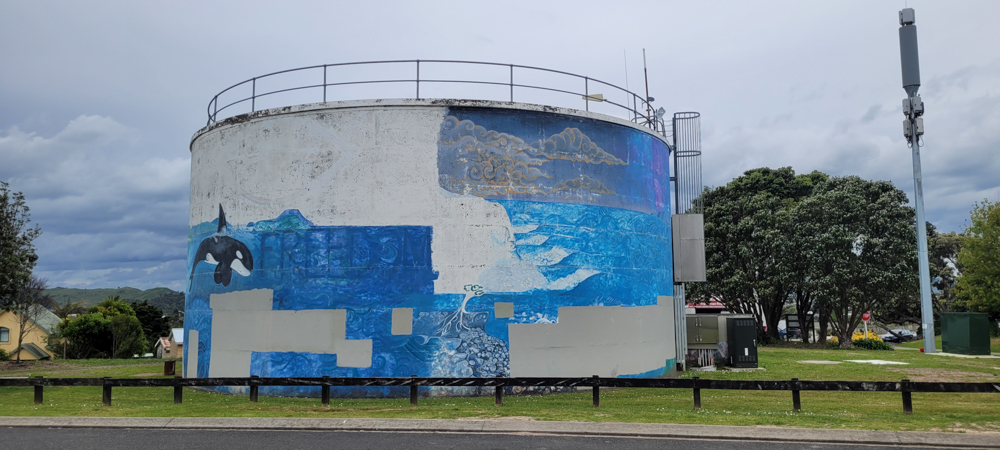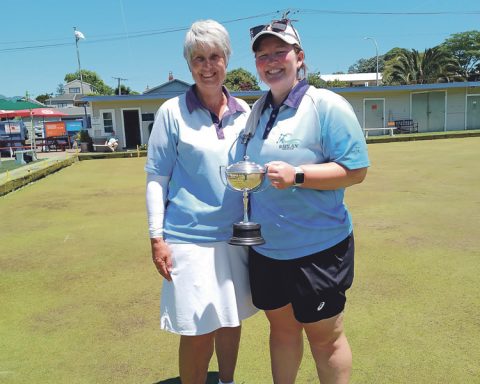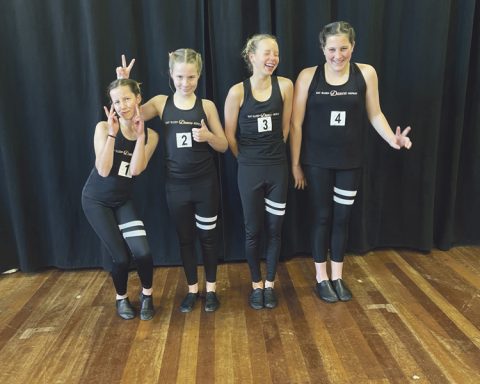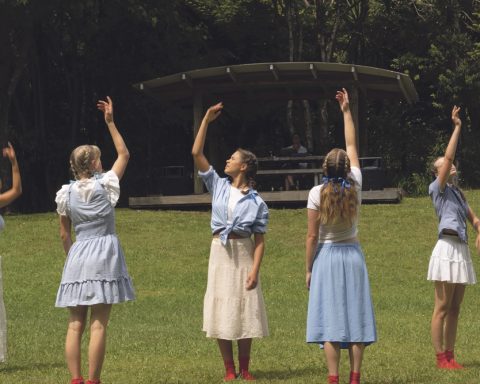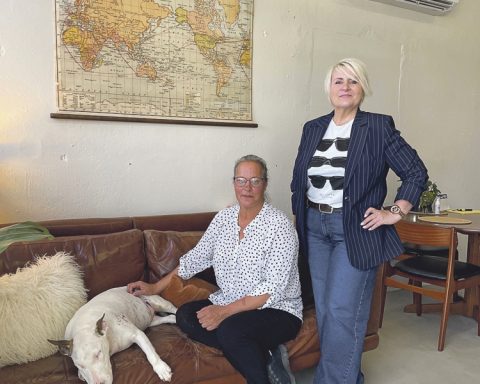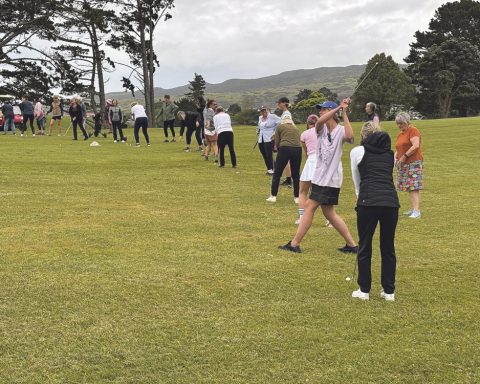They’re a new breed of old soldier – the “modern veterans” – who now make up a sizeable number of the marchers in Anzac Day commemorations, their work in war zones overseas often quite different to the horrendous battles waged by WWl and WWll vets.
But for locals Dan Grimshaw who served in Iraq in 2004 and Saen O’Brien who served on tours to Angola, East Timor and Cambodia for a decade ending in 2006, these were still significant and dangerous times marked by frequently living “on the edge”.
Saen, president of Raglan RSA and master of ceremonies again this year at the local Anzac Day service at the Bow St cenotaph, says the horrors of war can only make one appreciate New Zealand much more. “People here have no idea how lucky they are,” he told the Chronicle. “Our democracy, however flawed, is better than tyranny, facism or communism.”
While he was not fighting on the frontline, Saen’s work in logistics and demining was very dangerous. He was also involved in training the Timorese army, taking it from guerrilla to traditional or regular warfare which he admits was “quite exciting”.
In Cambodia, as the senior technical advisor of operations, Saen found his work fascinating insofar as it included archeological demining. There were explosive remnants to be dealt with from WWll, bombs from the Vietnam war plus 10,000lb bombs and bullet debris from Cambodian dictator Pol Pot’s revolutionary regime back in the seventies.
It was all dangerous work given that landmines and booby traps were being deactivated amid a heavily armed population, and one with little respect for human life, Saen insists.
He recalls long periods of being hyped up and “living on your wits” from day to day. Getting back to garrison duties was very boring by comparison, he reckons.
By contrast, Dan’s work in a non-combat role as a carpenter in the Royal New Zealand Engineers was supposedly more of a humanitarian nature. But it had its dangerous moments too because it was known as a sensitive trip politically where Kiwi soldiers were sent in to carry out reconstruction tasks while having to provide their own security. The Government at the time did not want Kiwi troops seen as the aggressors.
“We were there to win hearts and minds,” Dan explains, and while secure enough within their camp at Fortress Lines in Basra they faced a hostile environment outside of it. The year-long mandate consisted of tasks such as rebuilding and maintaining a 67-bay floating pontoon Bailey bridge across the Shatt Al Arab River, restoring access to services after the previous bridge had been blown up.
And once that was done there were kindergartens, schools and hospitals that needed “chippies” like himself, plumbers, sparkies and support crews to get to work.
Dan recalls the comradeship at camp but also the memories of getting mortared at night. “You’d hear the tubes fire and then wait for the bang, roll out of bed, grab a helmet and flak vest, wait for the last one and wait 10 minutes more; then have a roll call to make sure everyone was still alive.”
Dan – 25 at the time – was grateful to have had the opportunity to serve in this way, he says, despite the inherent risks. He trained for it at Linton Military Camp and regards being deployed to Iraq as “the pinnacle of my time in the army”.
He, like Saen, also now lives with his family in Te Mata, and both are proud members of Raglan’s Returned and Services Association.
While Saen was to be MC downtown at this week’s Anzac parade to “commemorate our service men and women overseas, especially those who gave their lives”, Dan was planning to march proudly alongside his comrades, about 30 of whom were staying over at his place to remember their time together two decades ago.
Dan describes those like him who have seen operational service since 1999 as modern or contemporary veterans.
The now 46 year old has an established and successful building business, The Reno Guys, based in Hamilton while Saen, now 63, worked as the Chief Instructor of the Trade Training School at Trentham Military Camp before his recent retirement.
Both returned servicemen follow in the footsteps of their fathers, grandfathers and great-grandfathers who also served in the New Zealand and British Army.
